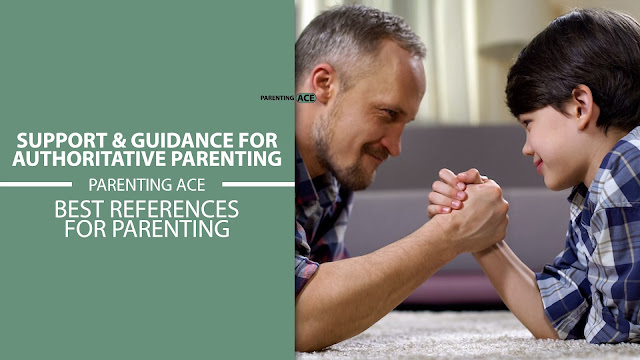Providing Support and Guidance: Strategies for Practicing Authoritative Parenting
Welcome to our latest blog post, where we explore the art of authoritative parenting—a balanced approach that harmonizes nurturing support with firm guidance. As parents, we all strive to provide the best environment for our children's growth, and authoritative parenting offers a roadmap to achieving just that. In this article, we'll delve into the core principles and effective strategies of authoritative parenting, empowering you to foster strong connections with your children while nurturing their independence and resilience. Join us on this journey as we uncover the keys to cultivating a supportive and empowering parenting style that lays the groundwork for a bright future for your family.
 |
| Support & Guidance for Authoritative Parenting |
Parenting is a journey marked by its complexities and challenges, yet it's also a profoundly rewarding experience. Among the various parenting styles, authoritative parenting stands out as a balanced approach that fosters a nurturing environment while instilling essential life skills and values in children. In this article, we delve into the concept of authoritative parenting and explore effective strategies for practicing it to provide optimal support and guidance to children.
Understanding Authoritative Parenting
Authoritative parenting is characterized by high levels of warmth and responsiveness combined with reasonable levels of control and discipline. Unlike authoritarian parenting, which tends to be rigid and punitive, or permissive parenting, which lacks structure and boundaries, authoritative parenting strikes a balance between nurturing and setting expectations. Parents practicing authoritative parenting establish clear guidelines and rules while also encouraging independence and autonomy within those boundaries.
Strategies for Practicing Authoritative Parenting
1. Open Communication
Effective communication is at the heart of authoritative parenting. Parents should maintain open and honest dialogue with their children, actively listening to their thoughts, feelings, and concerns. Encouraging children to express themselves freely fosters trust and strengthens the parent-child bond.
2. Setting Clear Expectations
Authoritative parents set clear and reasonable expectations for their children. These expectations encompass behavior, academics, and responsibilities. By providing clear guidelines, children understand what is expected of them and are more likely to comply.
3. Positive Reinforcement
Rather than relying solely on punishment, authoritative parents emphasize positive reinforcement. Acknowledging and rewarding desirable behavior reinforces it, encouraging children to repeat those actions. Positive reinforcement builds self-esteem and confidence in children.
4. Consistent Discipline
Consistency is key in authoritative parenting. Parents enforce rules and consequences consistently, ensuring fairness and predictability. Consistent discipline helps children understand boundaries and the consequences of their actions.
5. Encouraging Independence
Authoritative parents encourage independence and decision-making skills in their children. They provide guidance and support while allowing children to make age-appropriate choices and learn from their experiences. This approach nurtures self-reliance and problem-solving abilities.
6. Lead by Example
Parents serve as role models for their children in authoritative parenting. Demonstrating the values and behaviors they wish to instill in their children sets a powerful example. Consistency between words and actions reinforces lessons and strengthens the parent-child relationship.
7. Flexibility and Adaptability
While authoritative parenting provides structure, it also allows for flexibility and adaptability. Parents recognize that each child is unique and may require different approaches. Being adaptable to changing circumstances and individual needs fosters a supportive and responsive environment.
The Impact of Authoritative Parenting
Authoritative parenting has been associated with numerous positive outcomes in children's development. Research suggests that children raised in authoritative households tend to have higher self-esteem, better social skills, and academic success. They also exhibit lower levels of delinquency and behavioral problems compared to children raised under other parenting styles.
In conclusion, authoritative parenting offers a balanced approach that provides support and guidance to children while promoting their autonomy and independence. By practicing effective communication, setting clear expectations, using positive reinforcement, and serving as role models, parents can cultivate a nurturing environment that nurtures healthy development and fosters positive relationships with their children. Embracing the principles of authoritative parenting empowers parents to navigate the challenges of raising children while instilling essential life skills and values that will serve them well into adulthood.



Comments
Post a Comment